
Supercharge your lead generation with a FREE Google Ads audit - no strings attached! See how you can generate more and higher quality leads
Get My Free Google Ads AuditFree consultation

No commitment
Supercharge your lead generation with a FREE LinkedIn Ads audit - no strings attached! See how you can generate more and higher quality leads
Get My Free Google Ads AuditFree consultation

No commitment
Supercharge your lead generation with a FREE Meta Ads audit - no strings attached! See how you can generate more and higher quality leads
Get My Free Google Ads AuditGet My Free LinkedIn Ads AuditGet My Free Meta Ads AuditFree consultation

No commitment
Supercharge your lead generation with a FREE Google Ads audit - no strings attached! See how you can generate more and higher quality leads
Get My Free Google Ads AuditFree consultation

No commitment
In the evolving landscape of digital advertising, Google Ads presents a tremendous opportunity for event centers to increase visibility and attract more attendees. Event centers face unique challenges, such as missing high-value prospects not tracked in CRM, and delayed follow-ups that cool down hot leads before engagement. Google Ads offers precise targeting, real-time adjustments, and clear measurement of ROI—these tools help ensure these prospects are not overlooked. By integrating online and offline marketing efforts effectively, an event center can leverage Google Ads to bridge the gap between awareness and conversion, ensuring that their marketing dollars are well spent and results-driven.
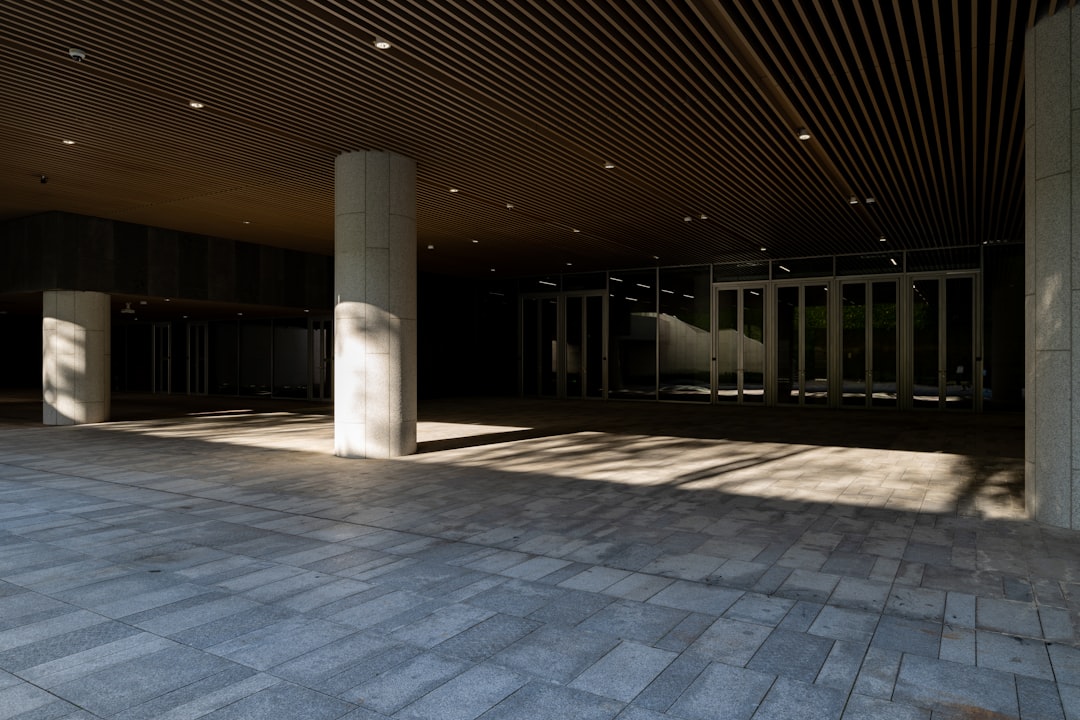
Event centers can achieve measurable growth by leveraging digital advertising tailored to high-value prospects. Modern online marketing for events empowers venues to build a robust sales pipeline and consistently fill their calendar with profitable bookings.
This guide details how to structure Google Ads for event center campaigns that attract, engage, and convert intent-driven audiences. Each tactic is grounded in practical strategies for maximizing budget efficiency and improving attribution across both online and offline touchpoints.
Event centers operate in a fast-paced market where timing and visibility directly impact revenue. Reaching planners and corporate clients exactly when they are searching for venues ensures fewer missed opportunities and maximizes bookings from high-value leads.
Google Ads empowers event centers to drive new business with precision targeting, capturing planners seeking premium spaces for corporate functions, trade shows, and large conferences. The platform’s robust measurement tools allow teams to track every interaction—from the first click to the final event booking—giving a complete view of which campaigns generate real business impact, including offline conversions such as tours and demo appointments. Google Ads for Events provides a deeper look at this trend.
Immediate responsiveness to market shifts is critical in event venue marketing. Google Ads enables rapid adjustments to budgets and creative, helping centers capitalize on unexpected opportunities, like last-minute booking surges or sudden changes in local demand. Solutions such as Sona ID support pinpointing actual companies and decision-makers actively in the market for event hosting, ensuring that advertising spend is always focused on the highest-converting accounts and driving measurable ROI for every campaign.
With dynamic audience management, campaigns evolve as prospects engage, ensuring messaging and offers remain relevant throughout the buyer’s journey. Advanced conversion tracking connects both online and offline activities, offering a unified view of marketing effectiveness. For more insights on optimizing attribution, check out our guide on Revenue Attribution. CRM and ad platform synchronization ensures enriched lead data flows seamlessly between Google Ads and sales systems, supporting highly targeted remarketing and efficient nurturing of every inquiry.
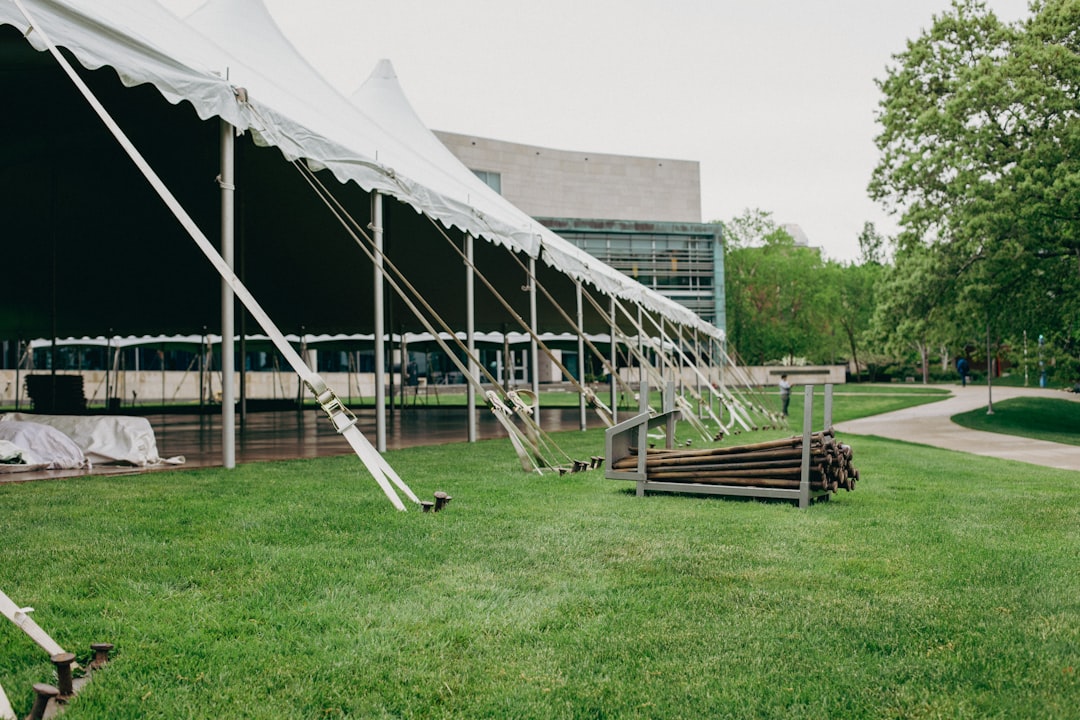
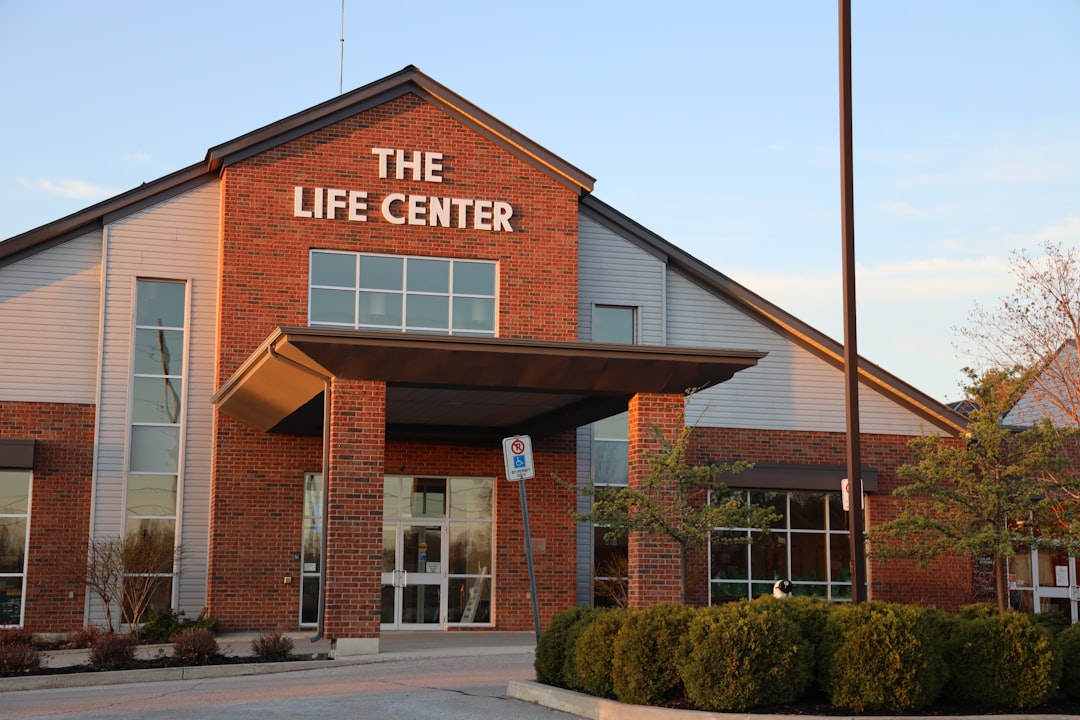
Innovative event centers consistently outperform by moving beyond traditional online marketing for events, identifying untapped growth opportunities that align with their unique value propositions. The most successful teams use data-driven targeting and real-time insights to connect with high-intent prospects, turning unknown website visits into actionable leads.
By pursuing these strategies, event center revenue teams avoid stagnation and unlock scalable, sustainable growth within the competitive digital advertising for events landscape.

Audience segmentation transforms event center marketing by delivering relevant experiences to distinct customer groups. Modern digital advertising for events prioritizes personalized engagement, which drives higher conversion rates and maximizes return on ad spend. Segmenting audiences by event type—such as corporate conferences, private parties, or nonprofit galas—prevents generic messaging and ensures campaigns resonate with real buyer needs. Successful Google Ads event campaigns avoid the inefficiencies of one-size-fits-all targeting by focusing on the specific priorities and expectations of each segment.
Intent signals, including recent website activity, inquiry form submissions, or content downloads, offer valuable insight into where each prospect stands in their buying journey. Utilizing these signals, marketers can adjust messaging and offers in real time, ensuring high-intent prospects receive priority attention and tailored calls to action. Platforms like Sona Audiences help event marketers pinpoint and engage the most relevant visitor segments for their campaigns.
Creating dedicated ad groups for each segment is critical for campaign clarity and measurement. Each group should have messaging, offers, and landing pages crafted for the unique needs of that audience—such as highlighting flexible floorplans for corporate clients or all-inclusive packages for weddings. Conversion tracking should validate the performance of each segment, attributing inquiries and bookings to the correct campaign touchpoints. For more insights on optimizing for different buying stages, check out our guide on stage segmentation.
When real-time audience data updates as leads progress through the funnel and syncs directly to CRM and ad platforms, teams gain the agility to refine targeting and messaging on the fly. This approach ensures every dollar invested in event promotion is tied to measurable outcomes, aligning marketing and sales for greater efficiency and growth.
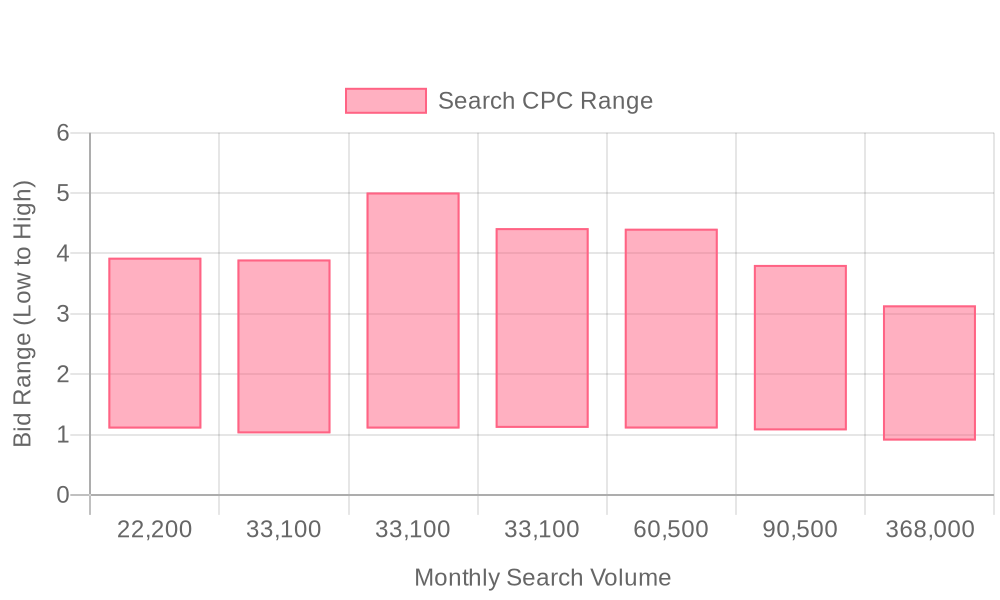
| Industry | Keyword | Monthly Search Volume | Competition Level | Low Bid | High Bid |
| Event Center | party venues | 22200 | LOW | 1.1 | 3.93 |
| Event Center | event center | 33100 | LOW | 1.02 | 3.9 |
| Event Center | event spaces near me | 33100 | LOW | 1.1 | 5.01 |
| Event Center | event venues near me | 33100 | LOW | 1.11 | 4.42 |
| Event Center | party venues near me | 60500 | LOW | 1.1 | 4.41 |
| Event Center | venues near me | 90500 | LOW | 1.07 | 3.81 |
| Event Center | wedding venues near me | 368000 | LOW | 0.9 | 3.14 |
A precise keyword strategy ensures event centers consistently attract and convert high-value leads through digital advertising. Identifying high-volume, low-competition search terms provides a scalable advantage for driving ROI, especially when these keywords align with real purchase intent and local demand. Marketers who tap into this data-driven approach can find hidden opportunities for event promotion, event venue marketing, and online marketing for events, capturing interest before competitors saturate the space. Google Ads provides a deeper look at this trend.
Clustering keywords by event service type and geographic region amplifies relevance and lead quality. For example, grouping "corporate meeting venue," "wedding reception hall," and "conference center rental" with local modifiers like city or neighborhood targets audiences actively searching for specific solutions nearby. This method supports more efficient campaign structures and improved ad relevance, which are critical for increasing click-through rates and lowering acquisition costs. When CRM data is unified with these clusters, audience segmentation becomes dynamic: marketers can adjust bids and messaging as leads move through the funnel, ensuring no opportunity is missed from inquiry to booking. For more insights on segmentation, check out our guide on Buying Stage Guide.
Deploying negative keywords is essential for filtering out irrelevant searches, preserving budget for only the most interested prospects. By excluding unrelated terms—such as "free event space" or "outdoor festival rental" when not applicable—event centers prevent wasted spend and maintain a high standard of lead quality. Tools like Sona Tool help marketers refine negative keyword lists in real time, focusing spend on segments with demonstrated in-market behavior and maximizing the impact of every advertising dollar.
Developing a robust keyword list is foundational to effective Google Ads for event center campaigns. Start by clustering keywords according to event types—weddings, conferences, corporate retreats, and private parties—to ensure relevance for each campaign. Localizing keywords with geographic tags such as neighborhood, city, or nearby landmarks increases the chance of appearing in high-intent local searches. Incorporate long-tail keywords like "affordable downtown event space with catering" to capture prospects with specific needs and higher conversion potential. Negative keywords should be applied to filter out irrelevant traffic, such as excluding terms like "free venues" or "public parks," which do not match your business objectives.
Aligning keywords with your broader content strategy creates a unified view of audience interest and intent. By integrating keyword performance data with visitor identification tools, marketers can move beyond aggregate analytics to pinpoint which companies or decision-makers are actively searching for event space. One analysis in Google Ads for Venues explores how tailored keywords and targeting approaches can significantly increase campaign ROI.
Tools like Sona Identification help marketers identify high-value visitors and attribute keyword-level intent, empowering teams to reallocate budget in real time to target accounts demonstrating the highest engagement for more efficient spend and improved lead quality.
Effective ad copy positions your event center as the clear choice for targeted prospects. Highlight unique venue strengths, such as flexible floor plans, on-site amenities, or award-winning service, and tailor messaging to resonate with the intended audience segment. Use ad extensions to provide valuable information at a glance—directions for ease of access, transparent pricing structures, and testimonials that build trust. This level of detail ensures your search and display ads not only capture attention but also address common decision criteria, driving more qualified inquiries.
Maintaining consistent messaging across all digital campaigns is essential for strong event venue marketing. When ad copy aligns with your remarketing efforts and branded content, prospects experience a cohesive journey from first impression to final conversion. For more insights on maximizing Google Ads performance, check out our guide on Boosting Ads ROAS.
Advanced platforms allow teams to sync enriched audience lists and updated lead segments directly into Google Ads, ensuring every campaign reflects the most up-to-date audience insights and supports seamless handoffs to sales and CRM systems.
Successful event promotion depends on a seamless journey from ad click to landing page. Each landing page should mirror the promise and language of its corresponding ad group, reinforcing trust and minimizing bounce rates. Prominent, action-oriented CTAs—such as "Book a Tour Now" or "Request Pricing"—guide visitors toward conversion, while clear navigation and mobile-optimized design remove friction for users on any device. Psychological CTA Tips can significantly increase landing page engagement and drive higher inquiry rates.
Connecting landing pages to CRM tools enables marketing teams to capture, qualify, and nurture leads without delay. By integrating real-time intent signals and tracking conversions both online and offline, event centers gain a true picture of campaign ROI. Solutions such as Sona Intent Signals support dynamic audience updates, ensuring that users who engage with a specific landing page are automatically moved into relevant retargeting or nurture sequences to maximize follow-up opportunities.
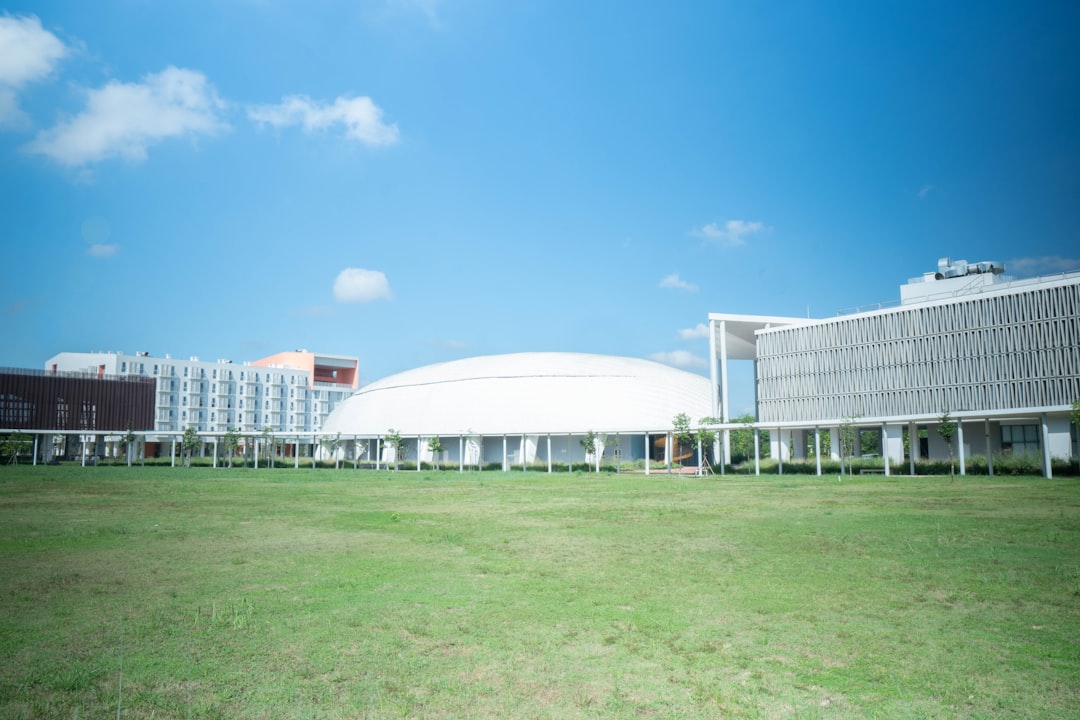
Maximizing the presence of your event center in today’s digital-first landscape hinges on orchestrating a unified marketing approach across paid and organic channels. By aligning messaging and visual identity in both spaces, you eliminate redundant spend, ensure prospects receive a consistent brand experience, and increase the efficiency of every marketing dollar.
Event centers that integrate these tactics with intelligent data platforms gain a critical advantage. Platforms like Sona Identification are designed to identify individual visitors and company accounts, enabling marketers to build hyper-targeted remarketing audiences and nurture high-value leads through personalized engagement. When search query data and real-time intent signals are unified, digital advertising for events becomes more agile—budgets can shift instantly to focus on segments most likely to convert, and messaging adapts as prospects progress through the funnel. This approach ensures every campaign, from initial event promotion to final ticket sales, is precisely tuned for maximum ROI and long-term growth.
Mastering Google Ads for your event center isn’t just about running campaigns—it’s about strategically connecting with your ideal audience and filling seats. By leveraging the right targeting, ad formats, and optimization techniques, you can turn clicks into attendees and maximize your return on investment.
Throughout this guide, we’ve explored how to craft compelling ad copy, use audience segmentation effectively, and measure performance to refine your strategy. Whether you’re promoting a one-time event or driving consistent bookings, these tactics ensure your ads stand out and deliver results.
Imagine effortlessly attracting more attendees, boosting ticket sales, and establishing your venue as the go-to destination for unforgettable experiences. With the right approach, Google Ads can be the powerful tool that transforms your event marketing—starting today.
Ready to put these strategies into action? Start a free trial to experience Sona's platform and its capabilities.
The best practices include creating targeted keyword lists, aligning ad copy and landing pages with user intent, implementing performance optimization tactics, and syncing online campaigns with offline events for comprehensive brand presence.
To create effective Google Ads, focus on targeted keyword lists, develop compelling ad copy that highlights unique venue features, design effective landing pages, and conduct A/B testing for continuous improvement.
The budget should be aligned with the specific goals of the campaign, focusing on high-intent segments and adjusting spend based on performance and return on ad spend metrics.
Yes, it's important to track both online and offline conversions, use precise targeting, and ensure that ad messaging aligns with customer intent and event specifics to maximize ticket sales.
Success can be measured by tracking ROI, conversion rates, and the alignment of online ad clicks with offline conversions such as tours and bookings, using tools like Sona for precise attribution.
Join results-focused teams combining Sona Platform automation with advanced Google Ads strategies to scale lead generation

Connect your existing CRM

Free Account Enrichment

No setup fees
No commitment required

Free consultation

Get a custom Google Ads roadmap for your business
Join results-focused teams combining Sona Platform automation with advanced Meta Ads strategies to scale lead generation

Connect your existing CRM

Free Account Enrichment

No setup fees
No commitment required

Free consultation

Get a custom Google Ads roadmap for your business
Join results-focused teams combining Sona Platform automation with advanced LinkedIn Ads strategies to scale lead generation

Connect your existing CRM

Free Account Enrichment

No setup fees
No commitment required

Free consultation

Get a custom Google Ads roadmap for your business
Join results-focused teams using Sona Platform automation to activate unified sales and marketing data, maximize ROI on marketing investments, and drive measurable growth

Connect your existing CRM

Free Account Enrichment

No setup fees
No commitment required

Free consultation

Get a custom Google Ads roadmap for your business
Over 500+ auto detailing businesses trust our platform to grow their revenue
Join results-focused teams using Sona Platform automation to activate unified sales and marketing data, maximize ROI on marketing investments, and drive measurable growth

Connect your existing CRM

Free Account Enrichment

No setup fees
No commitment required

Free consultation

Get a custom Google Ads roadmap for your business
Over 500+ auto detailing businesses trust our platform to grow their revenue
Join results-focused teams using Sona Platform automation to activate unified sales and marketing data, maximize ROI on marketing investments, and drive measurable growth

Connect your existing CRM

Free Account Enrichment

No setup fees
No commitment required

Free consultation

Get a custom Google Ads roadmap for your business
Over 500+ auto detailing businesses trust our platform to grow their revenue
Our team of experts can implement your Google Ads campaigns, then show you how Sona helps you manage exceptional campaign performance and sales.
Schedule your FREE 15-minute strategy sessionOur team of experts can implement your Meta Ads campaigns, then show you how Sona helps you manage exceptional campaign performance and sales.
Schedule your FREE 15-minute strategy sessionOur team of experts can implement your LinkedIn Ads campaigns, then show you how Sona helps you manage exceptional campaign performance and sales.
Schedule your FREE 15-minute strategy sessionOur team of experts can help improve your demand generation strategy, and can show you how advanced attribution and data activation can help you realize more opportunities and improve sales performance.
Schedule your FREE 30-minute strategy sessionOur team of experts can help improve your demand generation strategy, and can show you how advanced attribution and data activation can help you realize more opportunities and improve sales performance.
Schedule your FREE 30-minute strategy sessionOur team of experts can help improve your demand generation strategy, and can show you how advanced attribution and data activation can help you realize more opportunities and improve sales performance.
Schedule your FREE 30-minute strategy sessionOur team of experts can help improve your demand generation strategy, and can show you how advanced attribution and data activation can help you realize more opportunities and improve sales performance.
Schedule your FREE 30-minute strategy session





Launch campaigns that generate qualified leads in 30 days or less.
